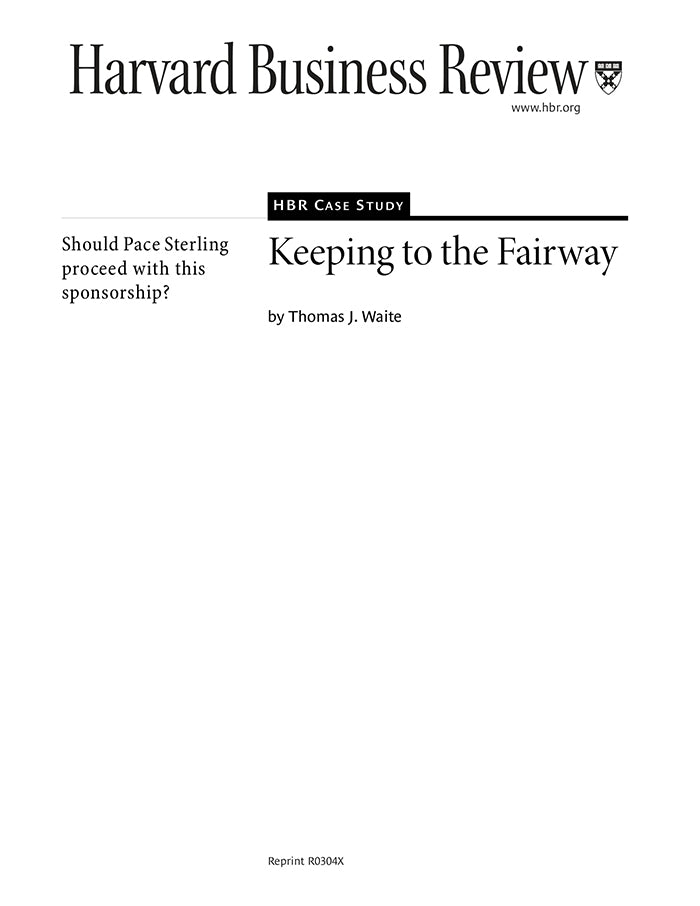Keeping to the Fairway (HBR Case Study)
受取状況を読み込めませんでした
For teaching purposes, this is the case-only version of the HBR case study. The commentary-only version is reprint R0304Z. The complete case study and commentary is reprint R0304A. Sandy Michaels, chief marketing officer of financial services giant Pace Sterling, faces a tough dilemma now that the high-profile golf tournament her company sponsors has been tainted with controversy. The Dover Hill country club, where the prestigious Champions invitational is played, accepts only men as members. This year, a powerful women's organization has decided to make a bigger issue of that exclusivity. Under pressure from the Women's Rights Organization (WRO) to withdraw its support, Pace Sterling must think about the marketing value it gets from the sponsorship and how much that value might be diminished--or heightened--by the controversy. CEO Cal Buckley enlists the help of Michaels and other senior executives in the company to determine just that. Michaels firmly believes that Pace Sterling should stay the course and sponsor the event. Michaels is unwavering--that is, until the day she comes across this newspaper headline: "Tommy Ward Should Boycott Dover Hill." Ward is the undisputed king of the golf world and the odds-on favorite to win the Champions. The WRO is clearly turning up the volume. Should Pace Sterling proceed with its sponsorship? In R0304A and R0304Z, offering advice are Sergio Zyman, former chief marketing officer of Coca-Cola; James E. Murphy, global managing director of marketing and communications at Accenture; Kim Skildum-Reid, co-author of The Sponsor's Toolkit and The Sponsorship Seeker's Toolkit; and Paul A. Argenti, a professor of management and corporate communication at Dartmouth's Tuck School.
【書誌情報】
ページ数:4ページ
サイズ:A4
商品番号:HBSP-R0304X
発行日:2003/4/1
登録日:2011/7/29

